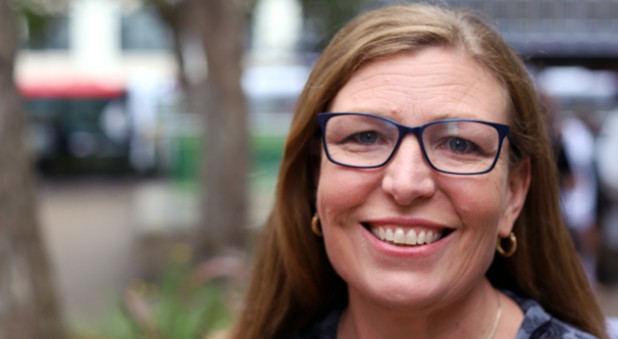This year the theme for the UN International Women’s Day is “For all women: rights, empowerment and equality”. It's intended to be a day to celebrate the achievements of women and call for greater attention to the status and rights of women.
This slogan recognises the ongoing prejudices and attitudes that fail to care for and honour women. It recognises that while there have been great gains for some in this area, many women continue to be subject to harm at the hands of others. The IWD slogan is a human cry to a sinful world that continues to exploit, demean, reject and harm women.
For example, a report from the UN in 2020 declared that women and girls represented 65 per cent of all trafficking victims globally. Ninety per cent of those women were trafficked for sexual exploitation.
Humanly speaking, these numbers seem insurmountable. The United Nations’ slogan of rights, empowerment and equality is a noble ideal yet, tragically, we know these ideals won’t be realised because sin, expressing itself in greed and exploitation, continues to particularly harm vulnerable women and girls.
Understanding this shapes the way we approach this day and reminds us to be ever thankful for the gospel in which we stand. In the gospel, we have the only true and lasting hope for the dignity and safety that International Women’s Day longs for – that our world longs for. In the gospel we have the right to be called children of God. The Cross is the power of God that will save us, and it is in the gospel that we stand equal as sinners saved by Jesus.
While we abhor the exploitation of any person, we must engage with these ideals through a gospel lens for that is how we always approach and understand the world. Our activism will only have purpose if driven by gospel principles, similar to those in the past such as William Wilberforce as he campaigned for 20 year to end the slave trade.
In the gospel I’m not sure we find “rights, empowerment and equality” quite as the UN envisages. Rather, the invitation of the gospel is to come to a Saviour who gave up his rights and laid down his life, calling others to do the same as they follow him. Don’t get me wrong – it’s essential for us to stand up and speak and be active against injustice.
Yet at the heart of our activism is a desire for people to come to know the one who deals with all people justly, who extends kindness to the vulnerable and who loves, serves, includes, affirms and values with compassion and hope.
There are many places in the gospels where Jesus’ compassion and justice is displayed.
Considering women, Luke’s Gospel in particular provides several extraordinary moments where women encounter Jesus and experience profound kindness. For me one of the most personal examples is Jesus' interaction with the widow of Nain in Luke 7. Jesus does a miracle to show that he is indeed the Messiah, and the crowd respond in awe declaring, “God has come to help his people” (v16).
It's the context of this miracle, and one line in particular, that’s especially powerful for me. Jesus arrives at the town of Nain as a funeral procession is taking place. The only son of a woman who is a widow has died. The whole town, it seems, is part of this funeral.
Using this as an opportunity to reveal his identity and display power that only belongs to God, Jesus raises the man from the dead. But prior to the miracle Jesus interacts with the widowed mother. In her distress he speaks to her. Luke records for us in verse 13 the inner heart of Jesus at that moment: “When the Lord saw her, his heart went out to her and he said, ‘Don’t cry’”.
His heart went out to her. At the moment Jesus is about to reveal something of his identity he is also deeply compassionate toward one of the most vulnerable in society – a widow who has lost her son. This is not passing pity. As Dane Ortland says in his book Gentle and Lowly, the Greek word used here for compassion “refers to a depth of feeling in which your feelings and longings churn within you”. Jesus responds to this woman’s distress with this deep compassion, even though he knows her son will soon be alive.
Of course, this is only one of the many accounts of women in the Gospel of Luke. Luke also contains the extended stories of Elizabeth and Mary, Jesus’ mother (Luke1), Anna’s encounter with baby Jesus (2:36-38), Jesus giving honour to a “sinful” woman (7:36-50), raising the 12-year-old girl and healing the woman with bleeding (8:40-55), time at the home of his friends Mary and Martha (10:38-42).
Additionally, there were the women who supported Jesus out of their own means (8:1-3) and women who stayed with him during his crucifixion and at the tomb (chapters 23 and 24). Each circumstance, each story reveals something of how God so deeply loves women, which is so antithetical to the mistreatment and abuse of women brought about by sinful people.
Jesus clearly gives dignity to women, recognising their equality with men in God’s creation and plan of salvation. This is our story. This is why we speak out against injustice.
As his church we have an opportunity to show where true dignity is found and point to the day when those in Christ stand whole, and where pain and the old order of things have passed away. We have an opportunity to show the world Jesus, who loved and defended and honoured women. Let’s go and talk about him.
The Ven Kara Hartley is Archdeacon for Women in the Sydney Diocese.























